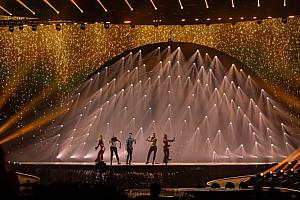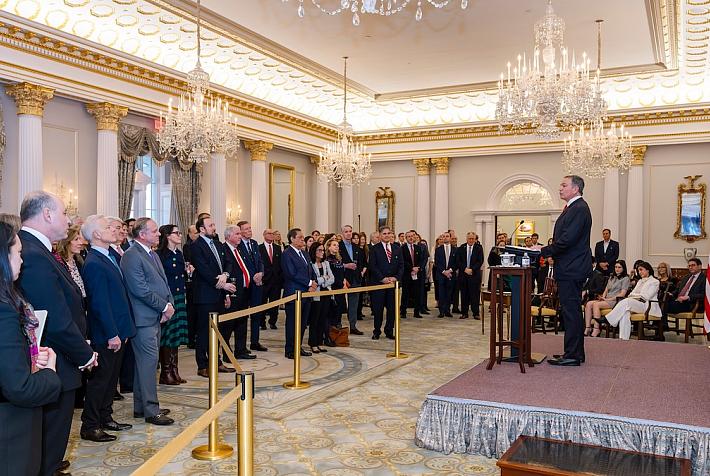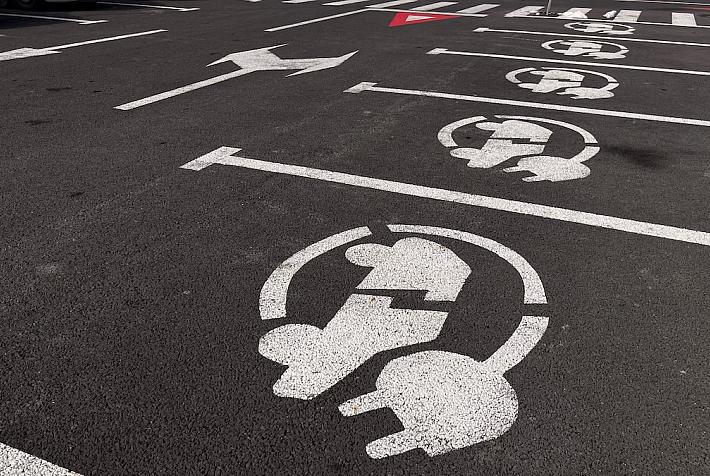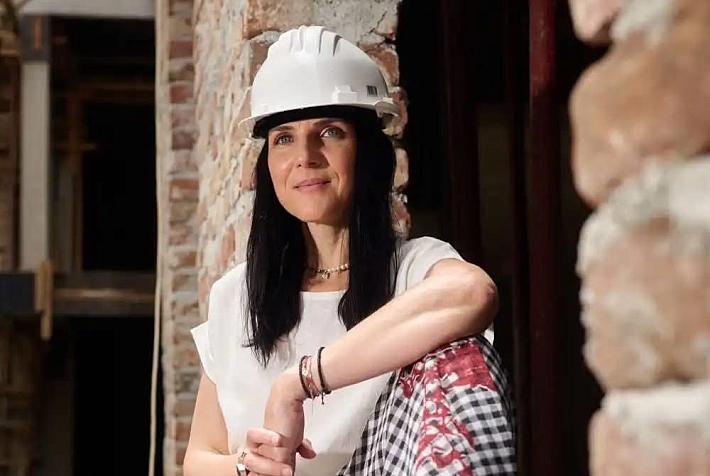Romania’s public broadcaster responds to Eurovision vote-rigging accusation with own accusations

Last week, the European Broadcasting Union (EBU) accused Romania and five other countries of vote-rigging in the second Eurovision semifinal. In reply, the national public broadcaster Televiziunea Română (TVR) argued that EBU’s behavior was “unacceptable,” and that Romania was punished while others were not, despite similarly dubious voting patterns.
After the Eurovision Grand Final on May 14, the EBU announced that it was looking into “irregular voting patterns” from six participating countries. Days later it was revealed that national juries from Azerbaijan, Georgia, Montenegro, Poland, Romania, and San Marino allegedly exchanged points among each other during the second semifinal, seeking to ensure the presence of their representatives in the Grand Final. Their votes stood out from those of other countries, which had consistently ranked the representatives of the six significantly lower.
To prevent the rigging of scores, the EBU replaced the jury votes coming from the six countries with an automatically calculated aggregate in the semifinal and grand final.
TVR begins its latest press release on the issue by criticizing the replacing of jury votes. According to the broadcaster, the EBU commandeered the Romanian jury votes and distributed them through a non-transparent algorithm. EBU’s handling of the entire situation, the broadcaster alleges, cast doubts over Eurovision and stained the reputation of national public service broadcasters.
All of this could’ve been avoided, TVR says, if the EBU had brought its concerns to the national broadcasters when it first identified suspicious voting patterns, on May 11, one day before the second semifinal. If that had happened, TVR says that it would’ve worked with the EBU to make sure that no suspicions hung over the Romanian jury votes.
“This would have been possible only if the EBU had treated TVR as a real partner,” the press statement goes on, “and taken into account the fact that Eurovision rules give total independence to national juries and that broadcasters cannot know or influence the scores they give until long after they are sent to the EBU. As such, it was only after the final that TVR found out how the Romanian jurors had voted in the semifinals,” the statement concludes.
TVR also advances its own accusations in its reply. The algorithm that supposedly served as a basis for the EBU’s accusations of vote-rigging, TVR argues, failed to spot suspicious voting patterns from other countries like Australia, Belgium, and Sweden. While Romania and five other countries were penalized and had their jury votes commandeered, TVR says, other participating countries benefitted from similar voting patterns without being sanctioned.
The Romanian broadcaster highlights how Australia essentially exchanged votes with Sweden, Israel, Belgium, and Ireland, receiving the same number of points as it gave to this group of countries. Sweden is also shown to have shared votes with Estonia and Malta, aside from Australia.
“The organizers did not notice any ‘irregular voting patterns’ when it comes to these countries,” TVR points out. Sweden, Australia, and Belgium managed to move on to the Grand Final, benefitting from points taken from the sanctioned countries and directed to the three by the algorithm.
“Out of the six countries accused of having an onerous deal to enter the final, only three managed to do it. All of the three that received points from the sanctioned countries passed to the final,” TVR says.
Eda Marcus, the host who was about to go live and hand out Romania’s jury points during the Grand Final, was blocked from doing so by the EBU, TVR alleges. During the Grand Final, EBU representatives had said that the connection with Bucharest could not be reached due to technical difficulties. “There was no technical problem,” the TVR press statement says.
TVR ends by stating that it is considering pulling Romania from all other future editions of Eurovision and suing the EBU. The station can do that, as only public service broadcasters can air the yearly Eurovision Song Contest after they partner with the EBU.
radu@romania-insider.com
(Photo source: Eurovision Song Contest Facebook page)













